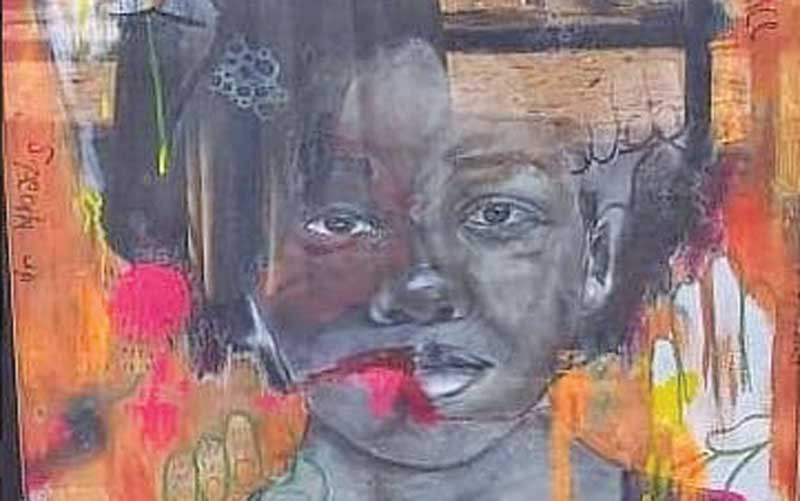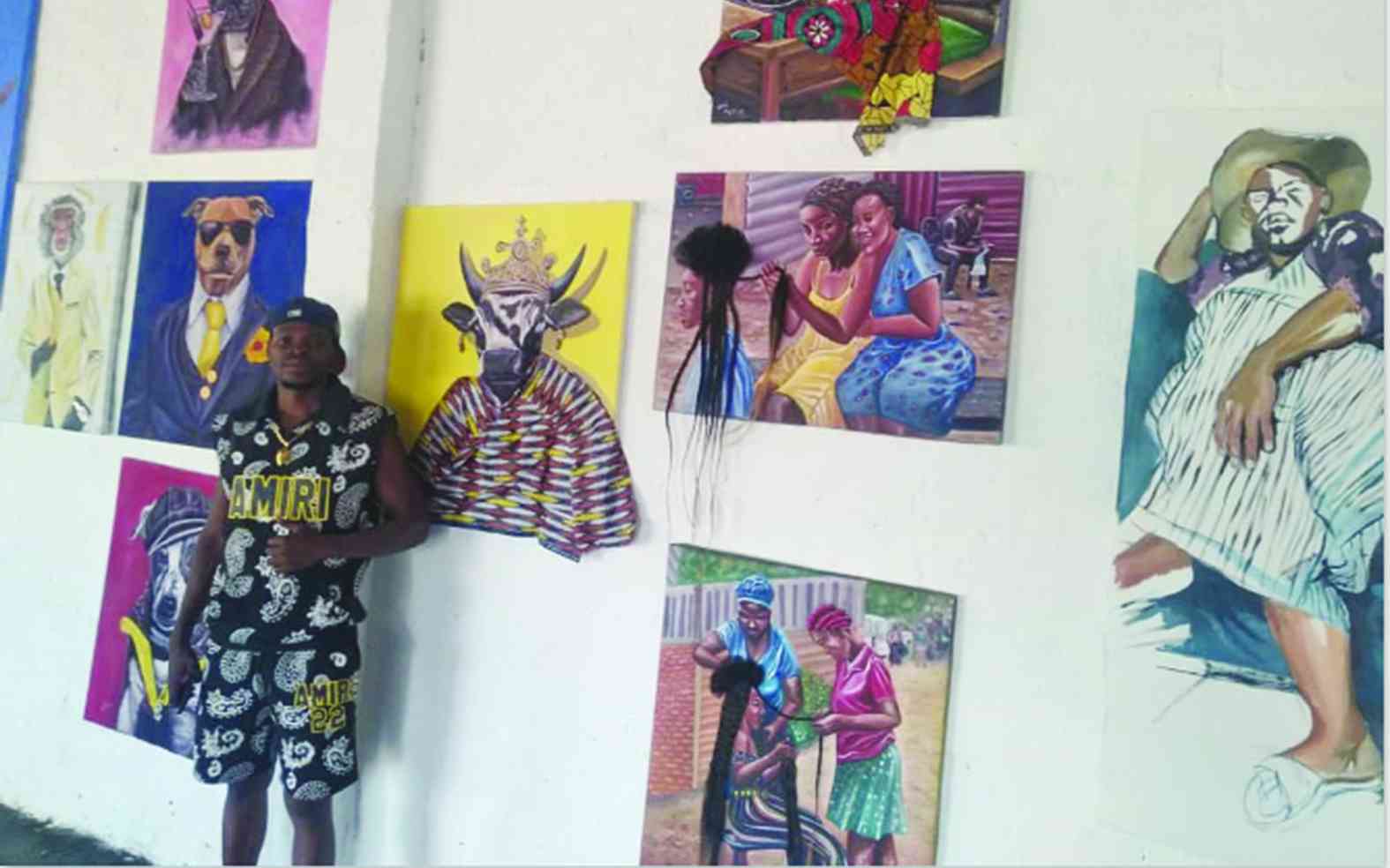
VISUAL artist Crystal Vimbainashe Beseni says she takes to the canvas to dispel society’s patriarchal stereotyping that women should be restricted to being child bearers, cooks and cleaners.
In an interview with NewsDay Life & Style Beseni said she creates artworks depicting various strengths and influences women have in society.
“African women are not restricted to the traditional roles. I am mainly concerned about showing the various identities that women possess in the diverse spheres of influence and also facilitate change in societal beliefs concerning women and art, while educating them about women's experiences through art,” she said.
The artist bemoaned that culture has often advanced the “white collar” job theory, while the art field has frequently been neglected. And although society has come to accept art as a form of making a living, the field is male-dominated, with few women participating in the industry.
Beseni, however, acknowledged efforts that have been made since the country’s 1980 independence to avail exhibition spaces for indigenous women in the art sector.
“This has created a remarkable change in the participation of women in various art forms using different mediums to express their voices and experiences. Some women in the art sector who include; Agnes Nyanhongo, Portia Zvavahera, Locardia Ndandarika, Gillian Rosseli, Marjorie Wallace and Netsayi Mukomberanwa among others have managed to penetrate the international art sector. They, however, still have little social recognition in the country,” she pointed out.
Moulding her career on personal experiences as a young African woman and mother living in the 21st century, Beseni dreams big.
“My life is overflowing with creating words through painting and other discoveries in art, broad a field as it is. My goal is to create works that merge harmony and conflict that I can share with others, and in doing so create my own happiness,” she said.
- ‘Women not confined to kitchen’
Keep Reading
She draws much inspiration from other African female artists such as Mwamba Chikwemba, Wangechi Mutu, Portia Zvavahera and Peju Alatise who address the issues of womanhood and identity of women as well as the day-to-day life experiences of women in various settings across the continent.
Beseni said her first encounter with art was nurtured by her parents who had a good eye for crafts and cake decoration before she proceeded to Peter Birch School of Art in 2002 where she acquired artistic skills like painting and drawing and then later on attended St David’s Girls High, Bonda from 2006-2009.
She is a first class degree holder of a Bachelor of Science Honours in Fine Art from Chinhoyi University of Technology and has since exhibited work at various galleries.
“Since obtaining my degree in fine art, I have participated in the International Women's day art exhibition hosted at the National Gallery of Zimbabwe this month, participated in the Gender Based Violence: Closing the Gap art exhibition at Nhaka Gallery in December 2023 to January 2024 among others.” she noted.
One of her pieces titled Conversations portrays a diverse group of women engaging in a conversation about promoting equity in the workplace. Each woman represents a different sphere of professional influence, reflecting the diversity of backgrounds and experiences. Through dialogue and collaboration, they explore strategies to shed more light on the importance of equity, aiming to create a more inclusive and supportive work environment for all. The artwork emphasises the power of collective action and the vital role women play in driving positive change in the workplace.
Another piece Musha Mukadzi, a term derived from the country's Shona culture, symbolises the intrinsic power and significance of women within their communities. The concept of "Musha Mukadzi" highlights the central role women play in shaping society and nurturing future generations. Through their resilience, wisdom and leadership, women embody the spirit of Musha Mukadzi, empowering themselves and inspiring others to embrace gender equality and celebrate the unique contributions of women in Shona culture and beyond.
Another piece, Weeping Widow is a poignant artwork that captures the profound sorrow and loss experienced by a grieving widow. Through the rough texture of the clay, she sought to convey the emotional turmoil and vulnerability of the subject.
The widow is depicted with tilted head and tear-stained cheeks, her posture conveying a sense of heaviness and resignation. Surrounding her are symbols of mourning, such as wilting flowers and unpainted clay, further emphasising the depth of her grief.
In Thinking Man, we see a lone figure representing the archetypal man deep in contemplation. Surrounding him are shadows and symbols of societal expectations, pressures and stigma that contribute to the neglect of men's mental health. The figure's introspective pose reflects the internal struggles and silent battles faced by men, often overlooked or dismissed by society.
Through subtle imagery and symbolism, the artwork challenges the prevailing notion that men should suppress their emotions and endure hardships without seeking help. It prompts viewers to reconsider societal norms and biases that perpetuate the neglect of men's mental well-being.
By shedding light on this important issue, the artwork advocates for greater awareness, acceptance and support for men's mental health struggles. It encourages open dialogue and less stigmatisation, fostering a more inclusive and compassionate society where all individuals can seek and receive the care they deserve.










